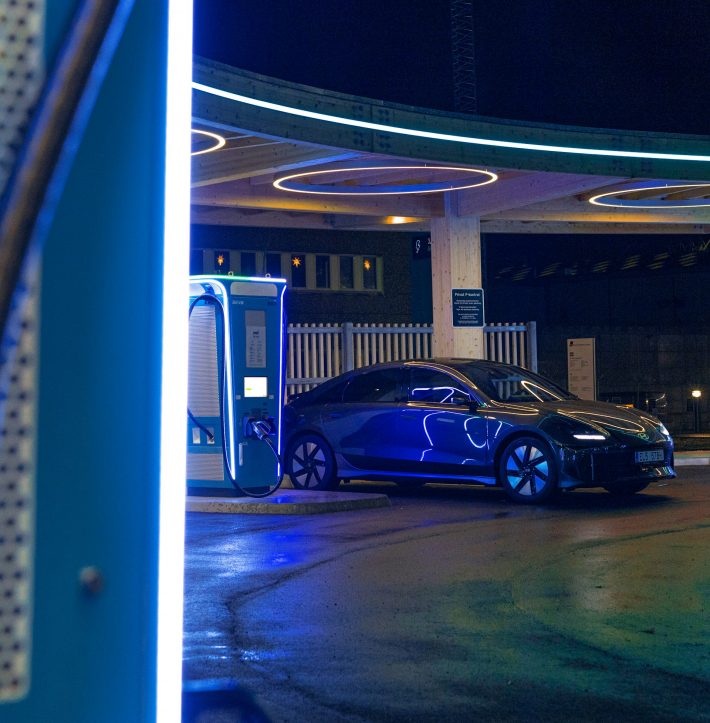Revenue generation and management have always been important objectives for the telecommunications industry. With the advent of IoT, these objectives have become even more relevant, considering that the large amount of data produced by IoT deployments is a strong source of new revenue opportunities. Saverio Romeo, a strategic advisor at IoT Analytics, spoke to Akil Chomoko, the product marketing director at MDS Global, to explore further the issues facing IoT monetisation.
Saverio Romeo (SR): MDS Global can be defined as an agile IoT monetisation vendor. Can you explain to our readers what that consists of?
 Akil Chomoko (AC): MDS Global offers a fully managed, cloud-based solution called IoTMonetised. It is a solution that can rate IoT application services for the purpose of charging end customers and settling with partners in the service chain. The challenge for many IoT enablers and communications service providers (CSPs) is that the IoT monetisation model changes significantly from one IoT project to another. For example, one may be based on price per mile, while the next may be based on savings made, with many variations in between such as for peak and off-peak rates or other variables.
Akil Chomoko (AC): MDS Global offers a fully managed, cloud-based solution called IoTMonetised. It is a solution that can rate IoT application services for the purpose of charging end customers and settling with partners in the service chain. The challenge for many IoT enablers and communications service providers (CSPs) is that the IoT monetisation model changes significantly from one IoT project to another. For example, one may be based on price per mile, while the next may be based on savings made, with many variations in between such as for peak and off-peak rates or other variables.
The MDS Global IoTMonetised solution has specific service features that enable agile adaptation to these business models and integration with IoT applications to accelerate their time to market.
Equally important, most IoT enterprises do not have the expertise and skills to manage eventbased charging, billing and payment collections. We run all this real-time, with full transparency and with full assurance, which covers accuracy to fraud management and ultimately, we become their monetisation practice.
SR: What types of customers do you serve with your services and platform solutions?
AC: We’ve profiled our customers into five categories. The first one consists of CSPs that are looking to move beyond selling connectivity to deliver full IoT solutions and services to IoT-based enterprises. The second one consists of systems integrators who are looking to support IoT enterprises with agile, low-cost monetisation solutions as opposed to traditional complex and costly projects.
The third group are IoT platform vendors that require revenue management features to help their customers monetise the IoT applications they build on their platforms. The fourth category are end IoT enterprises that need direct support to monetise their IoT innovations.
And finally, there is a growing market of virtual IoT operators and MVNOs, who are looking to offer a more complete bespoke IoT service enablement solution to customers.
SR: What benefits have your customers experienced after adopting MDS Global IoT monetisation services?
AC: Our solution is ready to deploy, opex effective and strongly revenue generating in comparison to bespoke developments and traditional billing solutions.
Many IoT ventures have limited initial capital for the development and deployment of their IoT application. Usually, they have not considered the cost of billing management services. Our solution makes monetisation more accessible. There is no need to hire a billing and settlements team. The MDS Global team is ready to go.
We offer the ability to swiftly evolve and change a service level agreement (SLA) as required. As a company’s pricing model becomes more sophisticated, MDS Global’s agile platform and intellectual property can adapt as fast as they do, enabling them to compete.
Finally, we have a team which offers thought leadership and experience with B2B and B2B2X charging models. We have strong experience and credibility, having had projects with some of the largest enterprise operations for nearly 20 years.
SR: Can you briefly discuss some real examples?
AC: We recently started working with Veriown, a Chicago-based IoT company, which is combining solar power with internet connectivity. Veriown has partnered with specific third party suppliers, including MDS Global and one of the UK’s largest mobile providers, to deliver services that have a monumental impact on the quality of life experienced by end-consumers who are typically based in environmentally or economically challenged countries.
Veriown provides a single device known as the CONNECT that acts as a clean energy, internet, media, education and commerce hub. There is an integrated SIM and tablet within the device that provides access to online education, entertainment and commerce to Veriown customers in remote end-user locations.
The mobile operator provides the connectivity for CONNECT. Veriown then determines which components customers can access based on the proposition they sign up to. It operates a revenue sharing model between the CSP, the local deployment partners and the local content partners. MDS Global’s IoTMonetised solution is used to calculate the revenue share for each partner, which incorporates reconciliation of data from the suppliers. Veriown will also use IoTMonetised to view customer transactions, and manage their balance, propositions and payments, enabling greater business visibility and tailoring packages to suit customer demand.
Using this infrastructure, Veriown is launching several free and add-on services that will provide consumers with solar energy for charging and lighting capabilities, access to news, weather and educational content, and access to an online catalogue of steaming radio and video content.
SR: What challenges have you experienced in proposing your approach to customers?
AC: Many IoT enterprises think of cost-plus or competitive pricing models as the only way of launching their business. Often these approaches make IoT business plans high-risk and unfeasible.
Many have not really worked backwards from a truly value-based pricing offer and thought about how to incorporate their partners and suppliers into a revenue or benefit sharing chain. When you distribute revenues this way you link together risk, reward and quality, which is more sustainable for some businesses, their customers and often many partners.
We often encounter far more complex and too ambitious monetisation models. Instead, they should start simple and build in complexity as their service and ecosystem evolves.
SR: Which emerging technologies do you see affecting IoT monetisation models?
AC: There are several emerging technologies that will impact our solution features. This includes the likes of blockchain, cryptocurrencies, eSIM, 5G, network slicing via software defined networks and network functions virtualisation (SDN/NFV) models, IoT data lakes and edge computing technologies. As a specialist monetisation vendor, it is our role to exploit these technologies to enable new benefits for end customers.
SR: How do you see the next year for MDS Global? What is your short-term strategic focus?
AC: Although there is a lot of industry debate and investment in IoT, it is still in its infancy. Our focus in the short-term is to build awareness of the opportunity to monetise IoT projects better so that they become sustainable in the middle and long-term. This includes supporting many existing B2B and enterprise services so that our customers can exploit these emerging technologies. They too should be able to offer more personalised services that deliver higher premiums. It is becoming a very exciting market for us.










